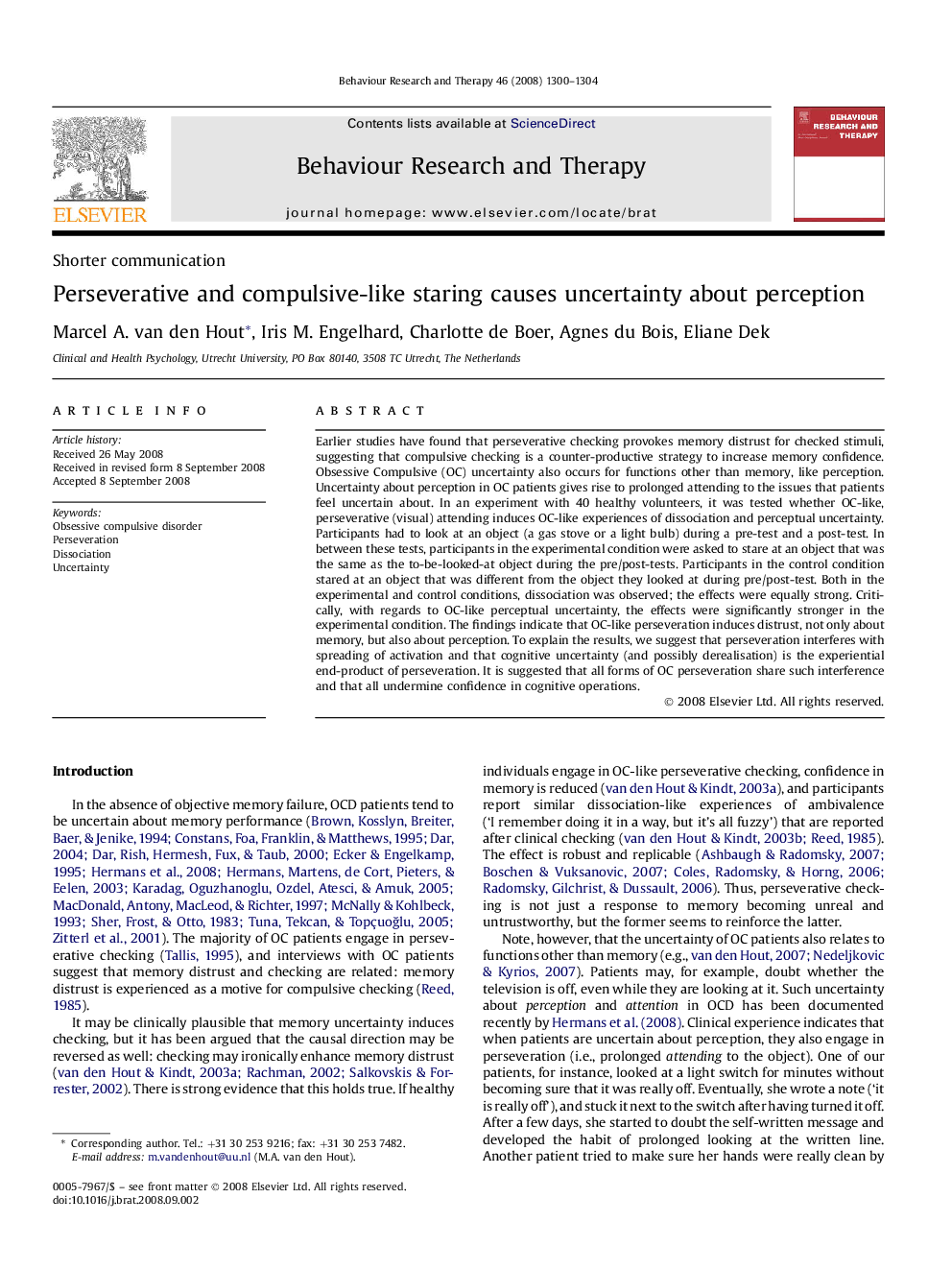| Article ID | Journal | Published Year | Pages | File Type |
|---|---|---|---|---|
| 902258 | Behaviour Research and Therapy | 2008 | 5 Pages |
Earlier studies have found that perseverative checking provokes memory distrust for checked stimuli, suggesting that compulsive checking is a counter-productive strategy to increase memory confidence. Obsessive Compulsive (OC) uncertainty also occurs for functions other than memory, like perception. Uncertainty about perception in OC patients gives rise to prolonged attending to the issues that patients feel uncertain about. In an experiment with 40 healthy volunteers, it was tested whether OC-like, perseverative (visual) attending induces OC-like experiences of dissociation and perceptual uncertainty. Participants had to look at an object (a gas stove or a light bulb) during a pre-test and a post-test. In between these tests, participants in the experimental condition were asked to stare at an object that was the same as the to-be-looked-at object during the pre/post-tests. Participants in the control condition stared at an object that was different from the object they looked at during pre/post-test. Both in the experimental and control conditions, dissociation was observed; the effects were equally strong. Critically, with regards to OC-like perceptual uncertainty, the effects were significantly stronger in the experimental condition. The findings indicate that OC-like perseveration induces distrust, not only about memory, but also about perception. To explain the results, we suggest that perseveration interferes with spreading of activation and that cognitive uncertainty (and possibly derealisation) is the experiential end-product of perseveration. It is suggested that all forms of OC perseveration share such interference and that all undermine confidence in cognitive operations.
